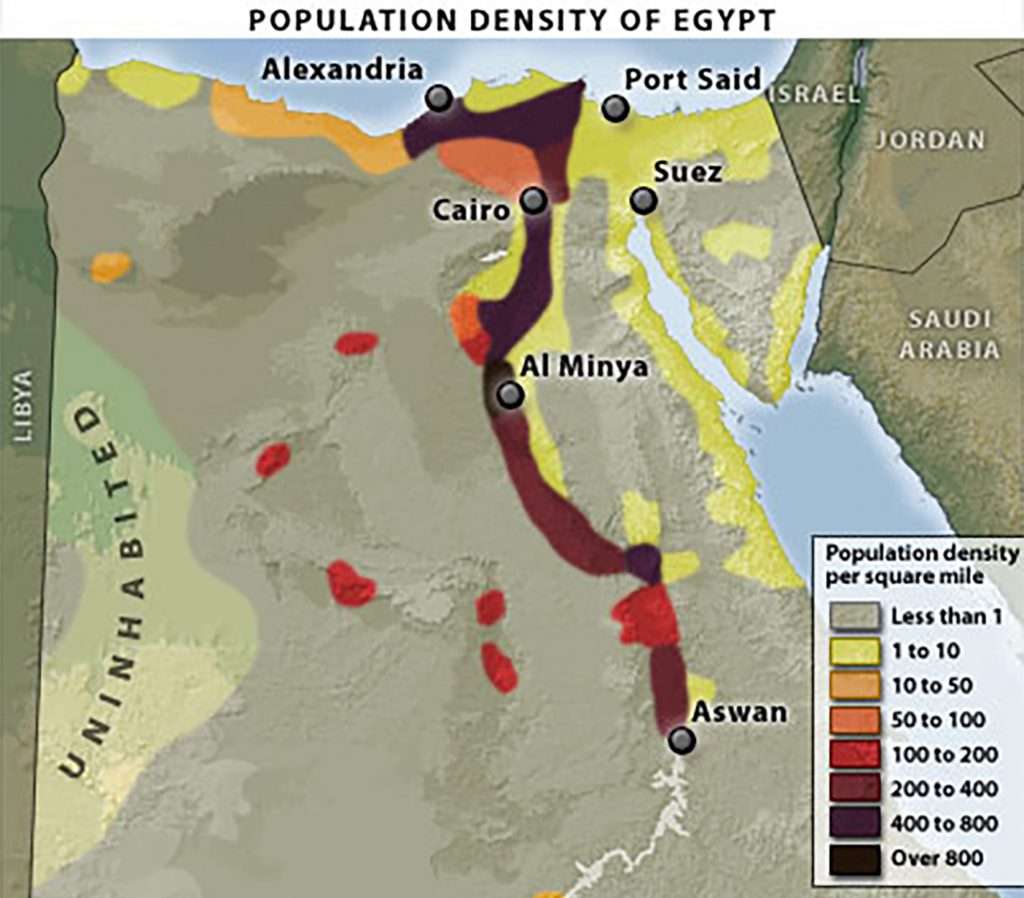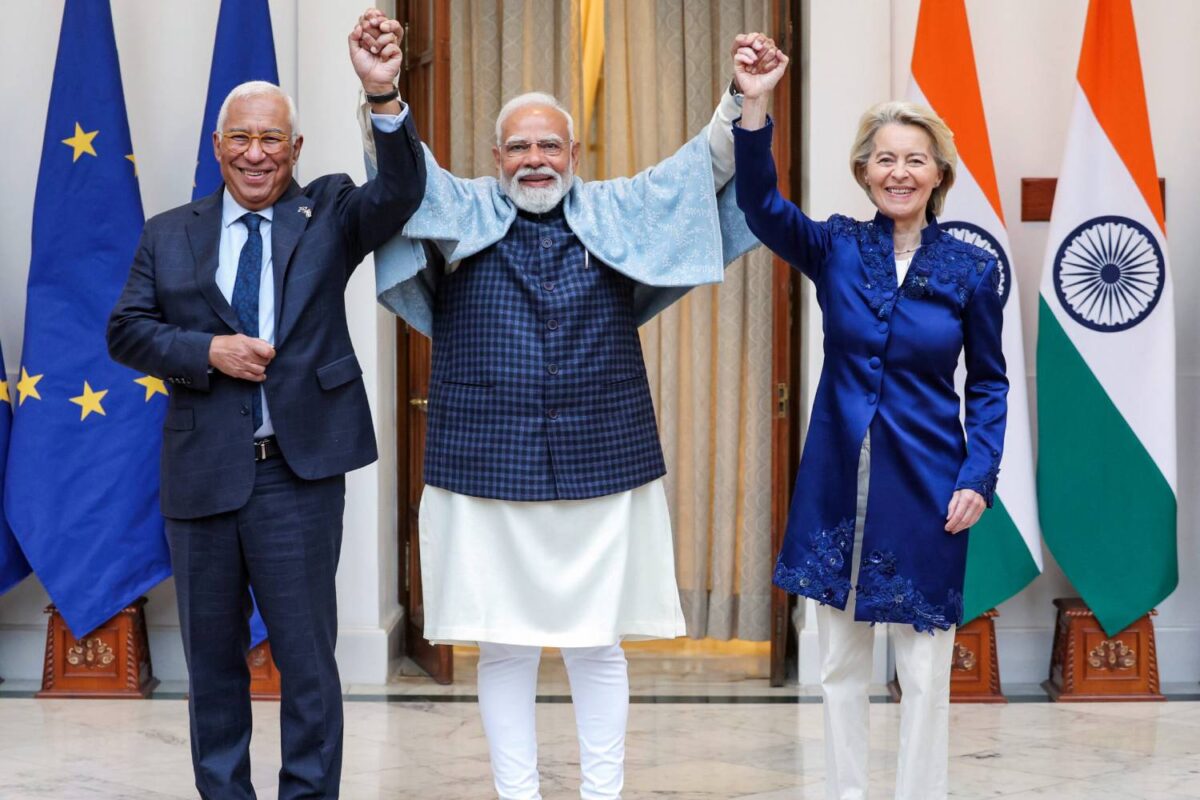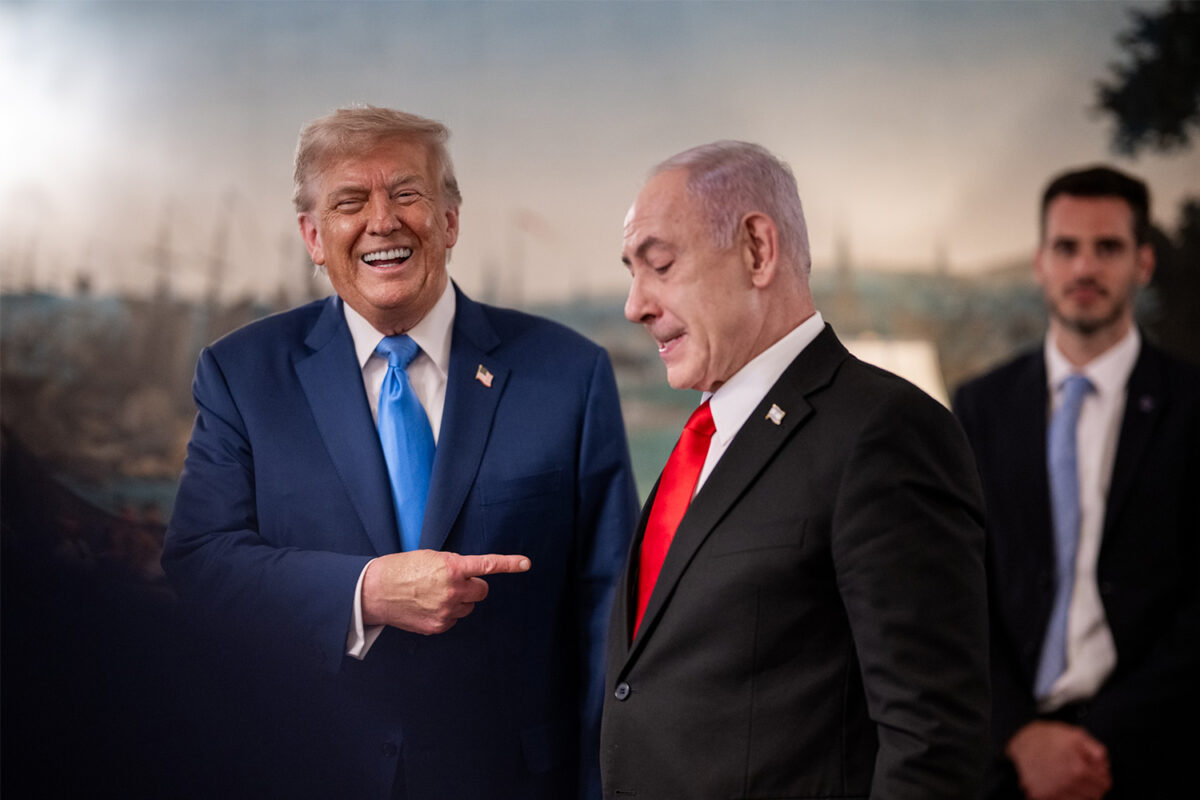As a nation, modern day Egypt occupies over 1 million square kilometres (386,000 square miles). It is twice the size of France, but most of its territory is wasteland desert. Just less than 35% of the 1 million square kilometres, a land area roughly the size of Belgium, is actually inhabited. This tiny portion of great Egypt, from the Aswan High Dam to the Mediterranean shore is Egypt’s core and home to 99% of the nation’s population of 92 million. Egypt, which has the largest population of any country Middle East, is stretched thin, clinging to the banks of the River Nile in a strip that is almost always less than 18 miles wide.
History
Egypt has one of the longest histories of any modern country, emerging as one of the world’s first nation states in the tenth year BC. Considered a cradle of civilisation, Ancient Egypt experienced some of the earliest developments of writing, agriculture, urbanisation, organised religion and central government. Iconic monuments such as the Giza Necropolis and its Great Sphinx, as well the ruins of Memphis, Thebes, Karnak, and the Valley of the Kings, reflect this legacy. Egypt’s location made Egypt a key territory for the Persians, Romans, Muslims and then the European colonialists and eventually the US.
Politics
The US inspired coup undertaken by the Free Officers in 1952 led to the abolishment of the monarchy and ushered in the era of army rule, which remains today. The Free Officers Movement, a group of largely junior military officers, established a new political system which turned the military into the most organized and important institution in the country. In 1956 Gamal Abdel Nasser took on the role of president of Egypt. Nasser nationalised the Suez Canal, which led to war with Britain, France, and Israel and in the process made Nasser a national hero which enhanced his stature in the wider Arab world. The loss to Israel in the six day war of 1967 led to a decision by the military leadership to move away from actual day-to-day governance, leaving this in the hands of a civilian leadership, whilst keeping foreign policy, defence and the national budget firmly under its control. To date, promotions to senior ranks are only made after heavy screening for political and Islamic leanings. Despite the Arab spring the army is heavily involved in the national economy. According to some estimates, as much as 40% of the Egyptian economy is controlled by the military.[1]
Economy
The Egyptian economy has historically and since ancient times been largely agricultural relying on the Nile River Delta to the North of the country. Since the 1950’s the government has developed the petroleum, services, and construction sectors, largely at the expense of agriculture. Egypt’s economy has gone through significant challenges in the post war period. Several brief wars with Israel and mismanagement of the economy during and after them has left it considerably strained. IMF and World Bank policies have turned Egypt into a net importer of food after a history of being the world’s breadbasket. According to the World Bank and Ministry of Economic Development, 40% of the Egyptian population live in poverty. Egypt’s economy has been ruined largely by its own self-destructive policies. For most of the past few decades it has been run exclusively for the interests of the ruling elite. Today Egypt has an economy worth $330 billion, almost entirely driven by agriculture, media, petroleum exports and tourism. Its services industry constitutes 49% of the economy.
The problem with the Egyptian economy is the fact that an elite few control it. When elites control an economy, they use their power to create monopolies and block the entry of new people and firms. This is how Egypt worked for three decades under Hosni Mubarak. The government and military own vast swaths of the economy. Even when they did “liberalize,” they privatized large parts of the economy right into the hands of Mubarak’s friends and those of his son Gamal. Big businessmen close to the regime, such as Ahmed Ezz (iron and steel), the Sawiris family (multimedia, beverages, and telecommunications), and Mohamed Nosseir (beverages and telecommunications) received not only protection from the state but also government contracts and large bank loans. Together, these big businessmen maintained their stranglehold on the economy creating astronomical profits for themselves, but blocked opportunities for the vast mass of Egyptians to move out of poverty. Meanwhile, the Mubarak family accumulated a vast fortune estimated as high as $70 billion.
Foreign Policy
Egypt’s foreign policy is driven primarily by being a lynchpin in projecting and protecting US strategic interests in the region. In return, the US has showered the military leadership with aid in order to control its domestic population as a means to fulfil the role the US has given Egypt. This US aid is in effect bribe money to maintain the regional balance, which Egypt’s military leaders have been more than happy to implement. For the small geography Egypt needs to defend, just 35% of the nation’s 1 million square kilometres is actually inhabited. The size of Egypt’s ground forces is massively disproportionate and puts a huge strain on the nation’s finances. Shana Marshall of the Institute of Middle East Studies at George Washington University highlighted: “There’s no conceivable scenario in which they’d need all those tanks short of an alien invasion.”[2]
The Future
According the UN estimates Egypt’s population will reach 120 million by 2030. Going forward, there is few places in the world that will be subject to as much pressure from growing numbers of people in the world, then Egypt. This rising population will need to be watered, housed; they will need new and modern transportation systems and labour markets. Competition for jobs, especially government jobs will be intense when 1 million people will enter the job market every year. The stress these demographic pressures exert—and the Cairo governments’ ability to mitigate them—will play a major role in determining the future trajectory of the country.
[1] See, http://www.nybooks.com/articles/archives/2011/aug/18/egypt-who-calls-shots/
[2] Egypt may not need fighter jets but US keeps sending them anyway, NPR.org, August 2008, http://www.npr.org/blogs/money/2013/08/08/209878158/egypt-may-not-need-fighter-jets-but-u-s-keeps-sending-them-anyway






One comment
faisal
28th August 2017 at 5:10 pm
make an article about Bangladesh.